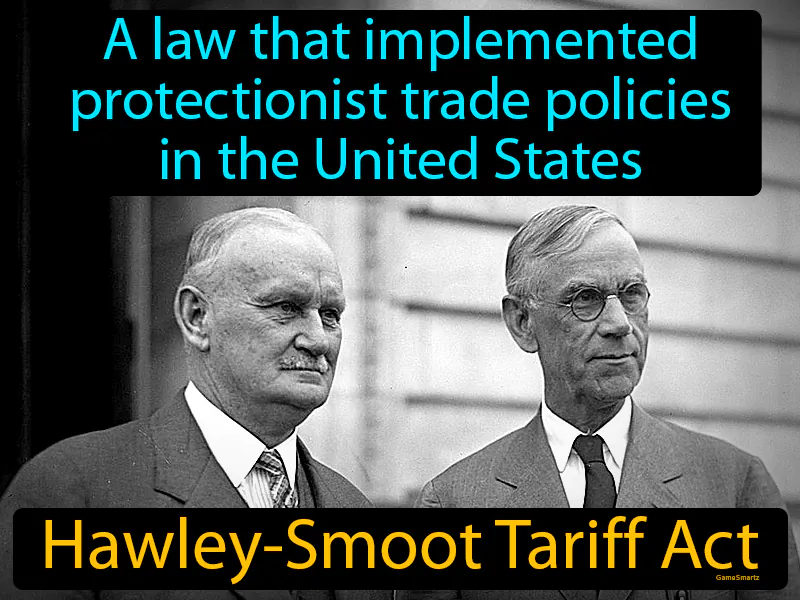Hawley-Smoot Tariff Act
Hawley-Smoot Tariff Act: Easy to understand
The Hawley-Smoot Tariff Act, passed in 1930, significantly raised U.S. tariffs on imported goods, aiming to protect American industries during the Great Depression. However, many countries retaliated with their own tariffs, leading to a decrease in international trade and worsening the global economic downturn. This event highlights the tension between protectionism and free trade, a debate that continues today as countries balance protecting local jobs with participating in global markets. For an average person, these trade policies can affect the prices of everyday items; for example, if tariffs are high, imported goods like electronics or clothing might cost more. Understanding the impact of such policies helps people appreciate how government decisions on trade can directly affect their cost of living and job opportunities.

Practice Version

Hawley-Smoot Tariff Act: A law that implemented protectionist trade policies in the United States. Hawley-Smoot Tariff Act. The Hawley-Smoot Tariff Act was a 1930 law that raised U.S. tariffs on over 20,000 imported goods, worsening the Great Depression.